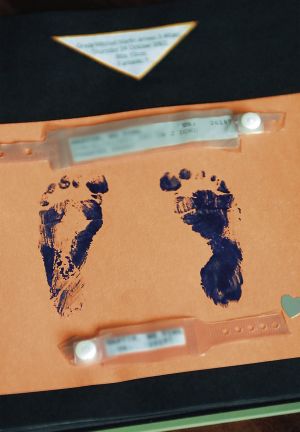
The Andrews government will shake-up Victoria’s reproductive treatment laws by giving all donor-conceived children access to identifying information about their biological parent. Photo: Eddie Jim
Men who anonymously donated sperm decades ago will soon be required to have their personal details passed on to their offspring – regardless of whether or not they consent.
But people who try to contact their donor without permission could face fines of almost $9000 as the state attempts to balance the right to privacy with the right of all children to know their heritage.
A discussion paper to be released on Monday outlines for the first time how the Andrews government will shake-up Victoria’s reproductive treatment laws by giving all donor-conceived people access to identifying information about their biological parent, such as their name, date of birth, or ethnic background.
At present, such access depends on when you were born, resulting in what Health Minister Jill Hennessy describes as decades of inequality “based simply on arbitrary time frames”.
People conceived after 1998 have unconditional access to details about their donor; those conceived between 1988 and 1998 can also get identifying information, provided their donor consents; but people born before 1988 have no access at all.
“Whether it’s to know more about their heritage, to learn their medical history, or so that they can try to connect with the generous individuals who donated to give them life, all donor-conceived Victorians should have the same rights to access information about where they came from,” Ms Hennessy said.
The government’s changes will mean that all people will have the same right to information, regardless of when they were born – and regardless of whether their donor agrees with their details being released.
Explicit permission will be needed, however, if a donor-conceived person then wishes to contact their biological parent, who will have the power to make a so-called “contact preference”, setting out if, or how, they wish to be approached.
According to the discussion paper, contact preferences will allow donors to nominate a preferred form of contact – such as email, telephone contact, or none at all – giving donors two months to decide after being notified that their biological child has sought their details.
“This recognises that parties may require some time to adapt,” the discussion paper says. “For example, this period will give donors an opportunity to advise family members of their donations if they are unaware, and if the donor chooses to tell them.”
Before identifying information is released, donor-conceived people also must sign an undertaking that they will comply with any contact preference, and if a donor decides they do not wish to be contacted, any breach of this request risks a fine of 60 penalty units ($8856 in today’s currency).
The legislation – to be introduced later this year – is likely to polarise the community. Doctors, for instance, have previously warned that retrospectively changing the law would breach assurances granted to men who donated on the condition of anonymity, some of whom provided their sperm simply for money or altruistic purposes.
And the move to impose fines on anyone who breaches a contact preference could also expose the government to claims of hypocrisy, given Labor is in the process of repealing similar fines put in place by the Coalition to protect adopted children from being contacted by their biological parents without full consent.
“Laws regarding people conceived through sperm donation are complex and very personal for those involved,” said opposition health spokeswoman Mary Wooldridge. “Labor’s discussion paper has not yet been provided to the Coalition for consideration, however their proposals appear to be directly at odds with their treatment of other individuals in similar circumstances.”
Details of the government’s plan came as a national conference for donor-conceived people took place in Melbourne on Saturday, in which federal circuit court chief judge John Pascoe renewed calls for a national register of donors.
The changes are based on a private members bill – Narelle’s Law – that Labor MPs Jane Garrett and Anthony Carbines introduced in opposition. The bill, rejected by the Coalition at the time, was named after the late Narelle Grech, a Melbourne woman who spent 15 years searching for her biological father while campaigning for change.
Records containing information about donors and donor-conceived children will be held on a central register and the Victorian Assisted Reproductive Treatment Authority will be the key service provider for anyone seeking information about donor conception, contact preferences, or medical records. Counselling will also be offered, particularly for people whose donor records may have been lost or destroyed.
